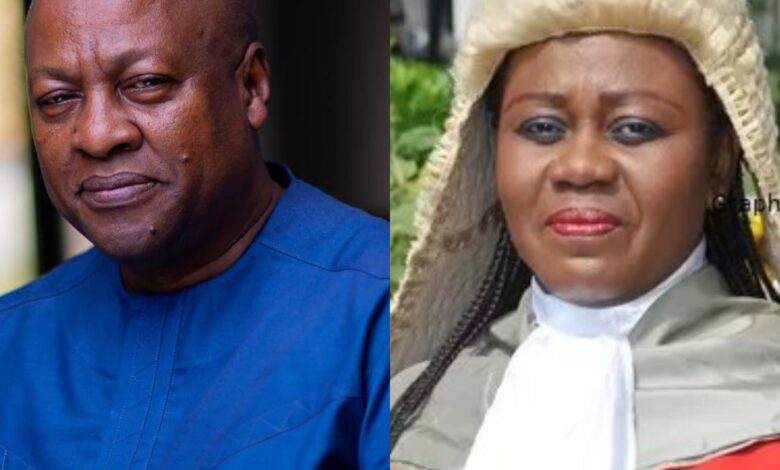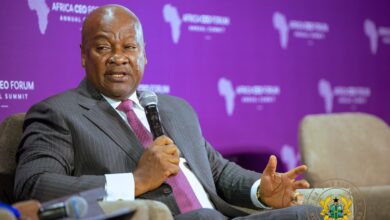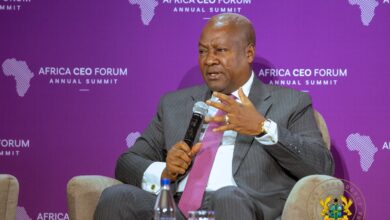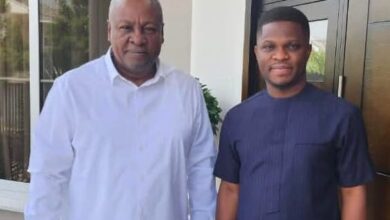
President John Dramani Mahama’s second term is becoming synonymous with a phase of subtle, yet impactful governance—a quiet diplomacy that has included a political “reset” within Ghana’s political landscape. Barely four months into office, the New Patriotic Party (NPP), the main opposition party, is already on edge, questioning the direction in which the country is heading.
On April 22, 2025, President Mahama took a bold step in suspending Chief Justice Gertrude Torkornoo following the submission of three undisclosed petitions accusing her of misconduct. The decision, made after consulting the Council of State, is based on the establishment of a prima facie case, which has led to the formation of a committee to investigate the allegations. However, the details of the accusations remain confidential, adding layers of uncertainty and tension to the political climate.
Legal and Constitutional Considerations: A Delicate Balance
Ghana’s 1992 Constitution, particularly Article 146, provides a clear framework for the removal of justices from the Superior Courts, including the Chief Justice. The article specifies that a justice can only be removed due to misbehavior, incompetence, or an inability to perform their duties due to infirmity. What makes this situation particularly significant is the unprecedented nature of suspending a sitting Chief Justice within the confines of this constitutional framework.
The process outlined in the Constitution includes due investigation, transparency, and evidence before any action is taken. The swiftness and secrecy surrounding the suspension raise legitimate concerns over whether the constitutional safeguards are being followed.
Political Reactions: The Heat of Political Discourse
The suspension has triggered a firestorm of reactions from various political quarters, especially from the NPP, who have labeled the move as politically motivated and unconstitutional. Party officials like Henry Nana Boakye and Secretary-General Justin Fimpong-Kodua have condemned the suspension, arguing that it undermines judicial independence and violates the principles of due process. They have warned of protests and have demanded the immediate reinstatement of the Chief Justice.
A critical question arises: Did the president act unconstitutionally? The lack of transparency and clear details about the accusations has led some to believe that this action could be an attempt to interfere with the judiciary for political reasons. However, given the constitutional processes at play, it is important to refrain from trial in the court of public opinion until the investigation is concluded.
The Position of Professor Stephen Adei: A Call for Caution
Professor Stephen Adei, former rector of the Ghana Institute of Management and Public Administration (GIMPA), has voiced concerns that the removal of the Chief Justice could set a dangerous precedent. He suggests that such actions could erode public trust in the judiciary and destabilize Ghana’s democratic institutions. While his concerns are valid, it’s essential to recognize that the investigation is still underway, and the final outcome will determine whether or not his fears materialize. As citizens, we must place our faith in the institutions designed to uphold the rule of law, trusting that due process will unfold.
Implications for Judicial Independence
The suspension of Chief Justice Torkornoo raises crucial questions about the state of judicial independence in Ghana. While the Constitution provides mechanisms to address allegations against justices, the absence of transparency surrounding the specific charges has fueled perceptions of political interference. The speed with which the suspension occurred has led to demands for greater clarity and adherence to constitutional safeguards.
In a democracy, the judiciary must remain independent from political influence, ensuring that decisions are based solely on the law, not partisan considerations. If the executive branch’s actions are seen as undermining this independence, it could have long-lasting effects on the public’s trust in the judicial system.
The Role of the Chief Justice in a Political System
Judicial independence is a cornerstone of any democracy, and the Chief Justice is expected to remain neutral and free from political pressures. However, as we explore the nature of the Chief Justice’s role within the political system, we must consider the broader implications of this position:
Judicial Independence: The Chief Justice should not be swayed by political parties, public opinion, or government pressure. Their duty is to interpret the law impartially, irrespective of political affiliations.
Constitutional Balance: In a well-functioning democracy, the judiciary serves as a check on the executive and legislative branches. The Chief Justice may rule on politically sensitive matters, but the decision should always be grounded in law, not political interests.
Can the Chief Justice Engage in Political Activities?
No: The Chief Justice cannot directly engage in partisan political activities, such as campaigning, endorsing candidates, or joining political parties. This would violate the ethical standards expected of judicial officers.
Yes: The Chief Justice can engage in broader discussions about the judiciary, the rule of law, and constitutional rights, even if these discussions have political implications. The key here is that the Chief Justice must remain neutral and avoid any partisan bias.
Reality vs. Ideal: In practice, the Chief Justice may be accused of being influenced by political factors, especially in countries where appointments are politically motivated. Public trust in the judiciary can be compromised if there is even a perception of bias. However, the ideal remains: the Chief Justice must act with integrity and neutrality, staying above political influence while fulfilling their constitutional duties.
Global Examples: Chief Justices Navigating Political Tensions
Let’s take a look at several notable examples of Chief Justices globally who navigated controversial or impactful roles within their respective political systems:
India – Chief Justice Dipak Misra (2017-2018)
Controversy: Chief Justice Misra and four senior judges publicly raised concerns about judicial administration, alleging that cases were being allocated in a biased and arbitrary manner.
Impact: This raised questions about judicial independence and transparency in India’s Supreme Court, marking an unprecedented moment in the country’s legal history.
United States – Chief Justice John Roberts (2005-Present)
Controversy: Roberts became a central figure in politically contentious cases, such as his pivotal role in upholding the Affordable Care Act in 2012.
Impact: His decisions on politically sensitive issues have often shaped the political landscape, showcasing the influence of the judiciary on national policy.
Pakistan – Chief Justice Iftikhar Muhammad Chaudhry (2005-2013)
Controversy: Chaudhry’s defiance against President Musharraf’s actions led to massive protests and his eventual reinstatement, symbolizing judicial independence in Pakistan.
Impact: His actions demonstrated how a Chief Justice can hold political leaders accountable, despite pressure from the executive.
Kenya – Chief Justice Willy Mutunga (2011-2016)
Controversy: Mutunga’s leadership during the 2013 Presidential Election dispute was politically charged, but he upheld the election results despite allegations of fraud.
Impact: His stance reinforced the judiciary’s role in safeguarding democracy, even in the face of political opposition.
South Africa – Chief Justice Mogoeng Mogoeng (2011-2021)
Controversy: Mogoeng faced political pressure, especially regarding his rulings on issues like corruption and the government’s stance on international obligations.
Impact: His decisions reaffirmed the judiciary’s role in holding the government accountable, even when faced with political pushback.
Conclusion: A Defining Moment for Ghana’s Democracy
The suspension of Chief Justice Torkornoo has stirred significant debate over the role of the judiciary in Ghana’s political system. While the actions taken by President Mahama are within constitutional bounds, they have raised important questions about judicial independence and transparency. As this process unfolds, it is crucial that all parties involved adhere to the principles of due process and transparency, ensuring that the judiciary remains a cornerstone of Ghana’s democracy.
The political climate surrounding this event reminds us that, while the Chief Justice’s role is to remain impartial, their actions can significantly impact the political system. In Ghana, as in many other democracies, the judiciary is not only a legal institution but a political actor—one that must remain above political influence to ensure the rule of law and the integrity of democratic governance.
Story by Alexander Kukah @kukahalexander@gmail.com




